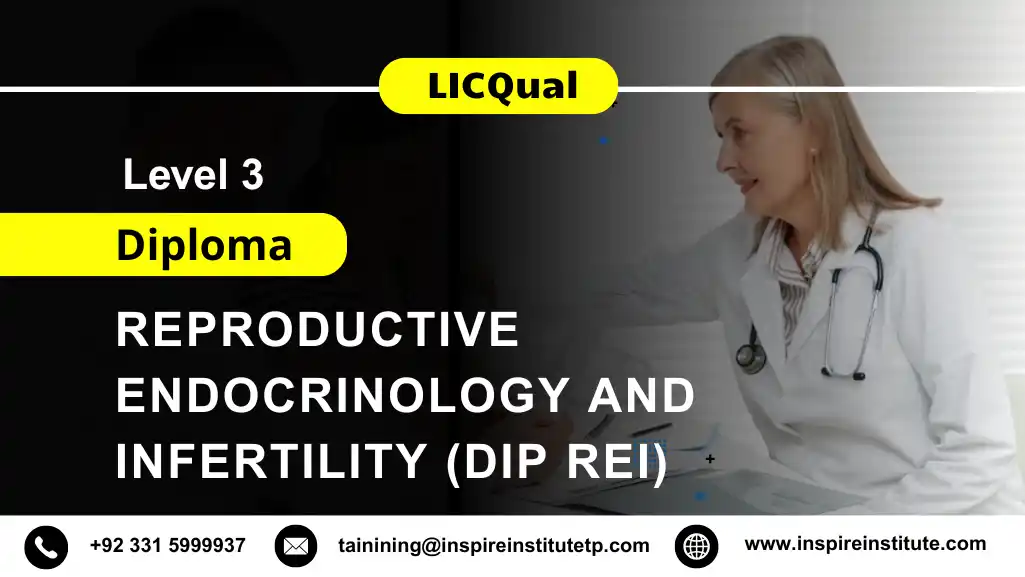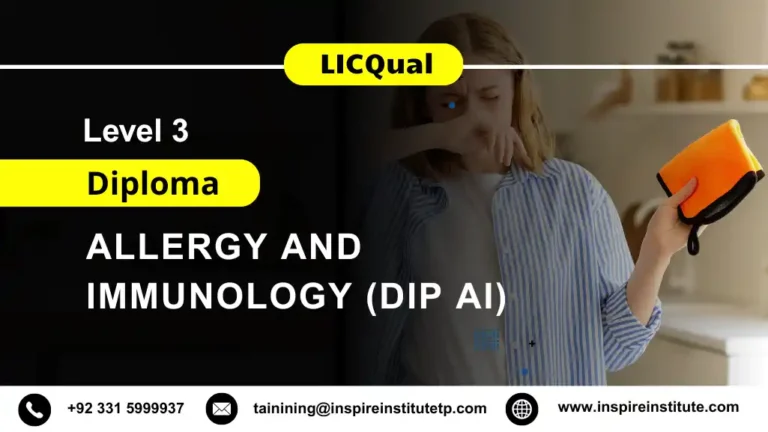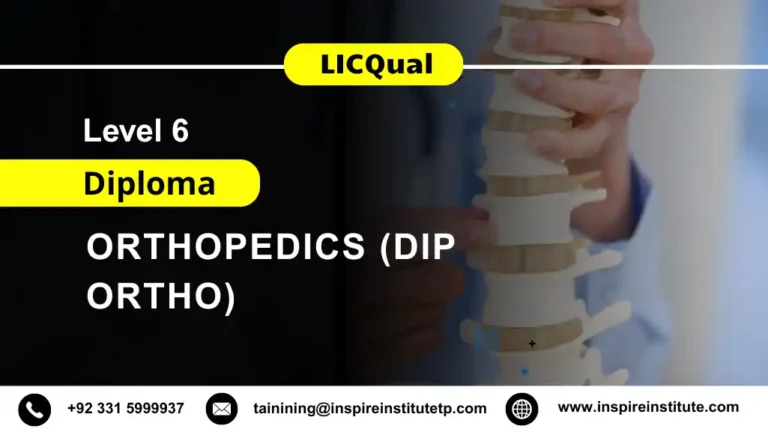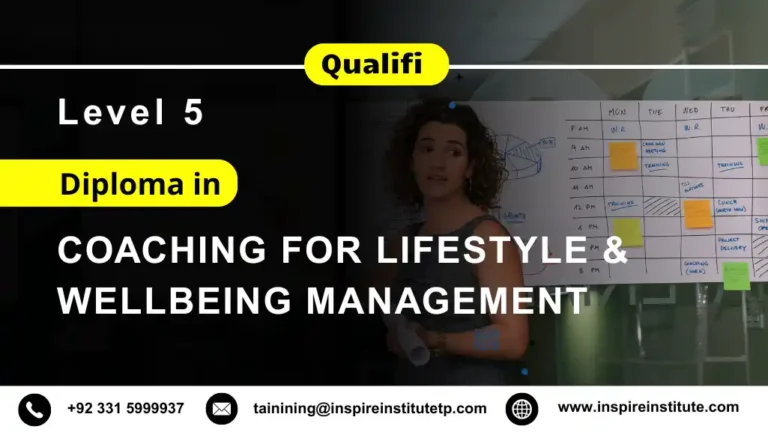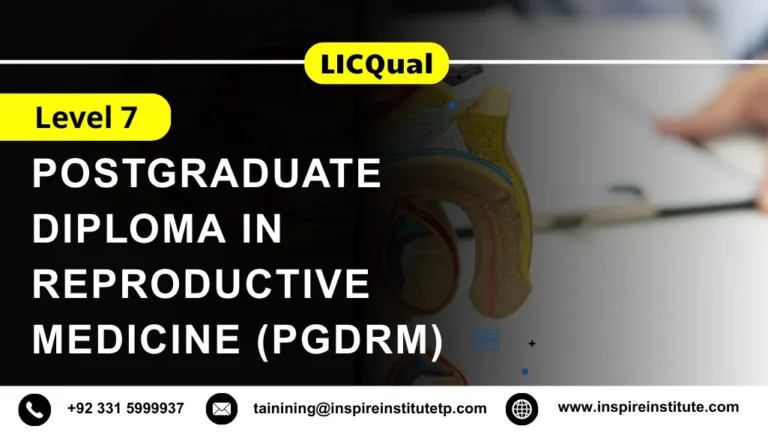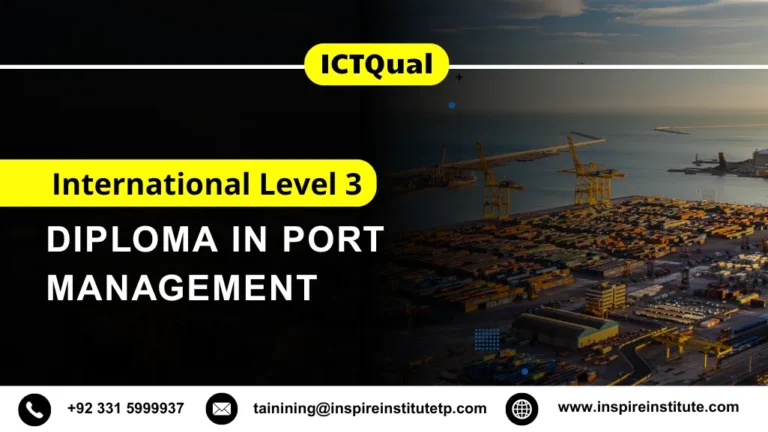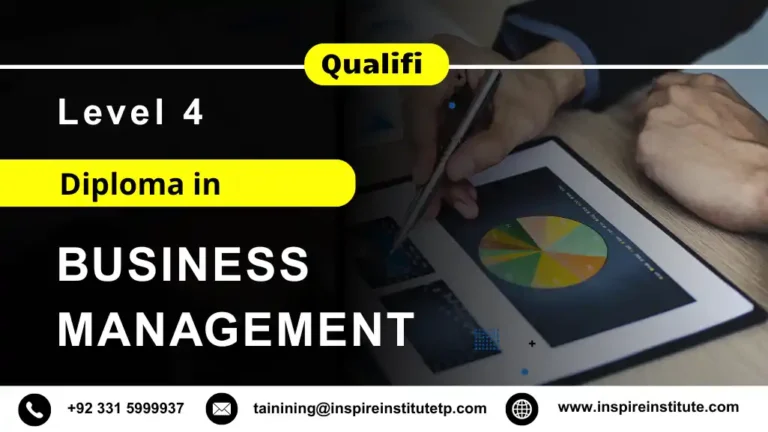LICQual Level 3 Diploma in Reproductive Endocrinology and Infertility (Dip REI)
The LICQual Level 3 Diploma in Reproductive Endocrinology and Infertility (Dip REI) is a UK-accredited qualification designed for healthcare professionals, medical practitioners, and aspiring specialists aiming to deepen their expertise in human reproductive health, hormonal regulation, and infertility management. This course provides a strong foundation in reproductive endocrinology, blending advanced theoretical understanding with practical clinical insights essential for diagnosing and managing infertility and related endocrine disorders.
The field of reproductive endocrinology and infertility plays a critical role in modern healthcare, addressing one of the most sensitive and complex aspects of human health — fertility and hormonal balance. This diploma empowers learners to explore the physiology of reproduction, endocrine system function, and common causes of infertility in both men and women. It also examines modern diagnostic methods, assisted reproductive technologies (ART), and treatment strategies guided by global healthcare standards.
The LICQual Level 3 Diploma in Reproductive Endocrinology and Infertility (Dip REI) equips learners with practical competencies required in clinical and laboratory settings. Students develop expertise in interpreting hormonal profiles, managing fertility assessments, and assisting in fertility treatments. The curriculum bridges the gap between reproductive science and clinical application, ensuring graduates are well-prepared to contribute effectively in reproductive health clinics, hospitals, and research facilities.
This UK-recognised qualification adopts an assignment-based structure, offering flexibility for professionals who wish to enhance their academic credentials while balancing career and personal commitments. Learners engage in independent study supported by evidence-based resources, case studies, and practical applications to reinforce understanding and clinical judgment.
The course also emphasises ethical and patient-centred approaches, helping learners develop sensitivity toward individuals and couples facing fertility challenges. By focusing on communication, professionalism, and empathy, the diploma prepares graduates to deliver compassionate and effective reproductive healthcare aligned with international best practices.
Upon successful completion of the LICQual Level 3 Diploma in Reproductive Endocrinology and Infertility (Dip REI), learners will possess the knowledge, clinical reasoning, and analytical skills to support reproductive health services and fertility management. Whether pursuing roles in endocrinology clinics, fertility centres, or advancing toward higher-level medical studies, graduates of this programme will be equipped to make meaningful contributions to improving reproductive outcomes and advancing fertility care globally.
Why Choose this Qualification
The LICQual Level 3 Diploma in Reproductive Endocrinology and Infertility (Dip REI) is a UK-accredited qualification that offers healthcare professionals, nurses, and aspiring reproductive specialists the opportunity to advance their expertise in one of the most vital and evolving areas of modern medicine. This comprehensive programme blends academic knowledge with clinical application, providing learners with the theoretical understanding and practical competencies needed to diagnose, manage, and support patients dealing with hormonal disorders and infertility. Designed as an assignment-based and flexible study programme, it enables learners to achieve professional growth while maintaining their work-life balance.
Key Reasons to Choose this Qualification
Advanced Knowledge in Reproductive Endocrinology
- Gain a thorough understanding of the human reproductive system, hormonal regulation, and the endocrine processes affecting fertility.
- Explore the physiological mechanisms of ovulation, spermatogenesis, and menstrual cycle regulation.
- Learn about common endocrine disorders such as PCOS, thyroid dysfunction, and hormonal imbalances that impact fertility.
- Understand how to interpret laboratory and diagnostic findings to support evidence-based medical decisions.
Expertise in Infertility Management
- Develop the skills to assess, diagnose, and manage infertility in both male and female patients.
- Gain practical insights into fertility evaluations, hormone analysis, and reproductive imaging.
- Learn to recommend appropriate medical, surgical, or assisted reproductive interventions based on clinical indications.
- Acquire a patient-focused approach that ensures ethical, compassionate, and professional infertility care.
Practical and Clinical Application
- Apply theoretical knowledge to real-world clinical scenarios through practical case studies.
- Strengthen your ability to perform fertility assessments and manage treatment protocols effectively.
- Build competence in handling assisted reproductive technology (ART) procedures and follow-up care.
- Understand the importance of multidisciplinary collaboration in reproductive health practice.
Internationally Recognised Qualification
- Earn a UK-accredited diploma that enhances your global career prospects in reproductive medicine.
- Align your professional expertise with international healthcare and fertility care standards.
- Open doors to employment opportunities in fertility clinics, hospitals, and reproductive research institutions.
- Add a recognised and credible qualification to your professional portfolio, increasing your employability.
Flexible Learning Structure
- Study at your own pace through an assignment-based learning model tailored to busy professionals.
- Balance your academic goals with work and personal responsibilities through online accessibility.
- Access high-quality learning materials and academic support throughout the course.
- Engage in self-directed study designed to strengthen your analytical and research skills.
Evidence-Based and Ethical Practice
- Learn current best practices in reproductive endocrinology and fertility management.
- Understand ethical considerations surrounding infertility treatments and reproductive technologies.
- Gain knowledge of global clinical guidelines and protocols in fertility care.
- Develop the ability to make safe, patient-centred, and evidence-based medical decisions.
Career Advancement Opportunities
- Enhance your professional profile and open pathways to specialised roles in fertility and reproductive health.
- Pursue advanced studies or research in endocrinology, gynaecology, or reproductive science.
- Build a foundation for leadership positions in fertility centres and healthcare organisations.
- Strengthen your credentials for global career mobility in reproductive and clinical healthcare.
Contribution to Global Reproductive Health
- Play a vital role in improving reproductive health outcomes and supporting patients with fertility challenges.
- Contribute to the development of sustainable reproductive healthcare practices worldwide.
- Engage in initiatives promoting fertility awareness, patient education, and healthcare access.
- Help advance reproductive medicine through knowledge-sharing, advocacy, and professional excellence.
The LICQual Level 3 Diploma in Reproductive Endocrinology and Infertility (Dip REI) is more than a qualification—it is a gateway to a rewarding and impactful career in reproductive healthcare. By combining scientific knowledge, clinical competence, and ethical awareness, this programme empowers learners to provide high-quality fertility care and make meaningful contributions to reproductive medicine both locally and globally. (Dip CTS), learners gain not only a recognised qualification but also the specialist skills, evidence-based knowledge, and practical competence needed to excel in cardiothoracic healthcare. This programme empowers healthcare professionals to advance their careers, improve patient outcomes, and contribute to global surgical excellence.are, advance their careers, and contribute meaningfully to global health outcomes in endocrinology.
Course Overview
LICQual UK Awarding Body
Average Completion Time:
4-12 Months
Study Units: 6 Units
Evidence & Assignment Based
Mandatory Units
Who Should Take This Course
The LICQual Level 3 Diploma in Reproductive Endocrinology and Infertility (Dip REI) is designed for individuals who wish to gain advanced understanding and practical competence in reproductive health, hormonal regulation, and infertility management. This UK-accredited qualification provides learners with the theoretical knowledge and applied clinical skills required to excel in reproductive healthcare, fertility assessment, and patient-centred treatment. The course is ideal for healthcare professionals, nurses, and aspiring fertility specialists aiming to enhance their professional capabilities and contribute to improving reproductive outcomes globally.
This course is suitable for
Healthcare Professionals and Practitioners
- Perfect for doctors, nurses, midwives, and clinicians seeking to strengthen their expertise in reproductive endocrinology.
- Enhances the ability to diagnose, manage, and treat patients with reproductive and hormonal disorders.
- Equips professionals with the latest practices in infertility evaluation, hormonal testing, and patient consultation.
- Enables integration of reproductive health management into daily clinical responsibilities.
Reproductive Health Specialists
- Ideal for individuals working in fertility centres, reproductive health clinics, or endocrinology departments.
- Provides advanced training in understanding hormonal imbalances and their impact on fertility.
- Strengthens skills in managing assisted reproductive technologies (ART) and fertility treatment protocols.
- Encourages a scientific, ethical, and empathetic approach toward fertility patients and their care.
Medical Laboratory Technicians
- Suitable for laboratory professionals involved in hormone testing, semen analysis, and reproductive diagnostics.
- Builds competence in interpreting hormonal assays and understanding the physiology behind endocrine functions.
- Enhances analytical skills in laboratory data interpretation and fertility investigation.
- Provides essential insight into collaboration with clinicians and fertility specialists for accurate diagnosis.
Allied Healthcare Professionals
- Designed for paramedics, health educators, and public health practitioners aiming to specialise in fertility health.
- Offers insight into global reproductive health challenges, preventive measures, and patient counselling.
- Strengthens communication and awareness strategies in community-based reproductive care.
- Helps bridge the gap between clinical knowledge and patient education in reproductive health.
Students in Medical and Health Sciences
- Ideal for learners pursuing careers in medicine, biology, or healthcare who wish to gain a focused understanding of fertility science.
- Provides foundational learning in human reproductive physiology and endocrine regulation.
- Encourages research-based learning and critical analysis in reproductive healthcare.
- Equips students with early exposure to fertility management and related medical advancements.
Researchers and Academicians
- Suitable for individuals involved in medical or reproductive health research seeking to expand their academic knowledge.
- Offers a solid foundation for investigating infertility trends, endocrine disorders, and reproductive technologies.
- Encourages participation in evidence-based research contributing to global reproductive health studies.
- Strengthens understanding of ethical and clinical dimensions in fertility research.
Career Changers and Healthcare Enthusiasts
- Welcomes individuals transitioning into the healthcare sector with a passion for reproductive medicine.
- Provides structured, flexible learning suitable for professionals seeking to enter the field of fertility care.
- Delivers a strong theoretical and practical grounding without requiring previous surgical or clinical experience.
- Opens opportunities for meaningful employment in reproductive and maternal healthcare services.
International Healthcare Professionals
- Perfect for globally minded learners aiming to enhance their professional standing with a UK-accredited qualification.
- Prepares healthcare practitioners to work in fertility and reproductive medicine centres worldwide.
- Strengthens understanding of global standards and international fertility treatment protocols.
- Enhances employability across hospitals, clinics, and research organisations focused on reproductive health.
The LICQual Level 3 Diploma in Reproductive Endocrinology and Infertility (Dip REI) is ideal for anyone aspiring to advance their career in reproductive and fertility medicine. Whether you are a healthcare professional, laboratory specialist, or a newcomer to the field, this programme equips you with the essential skills, scientific knowledge, and ethical awareness required to deliver effective, evidence-based reproductive healthcare and contribute meaningfully to global fertility solutions.heir career prospects, enhances patient care, and equips them for advanced roles in cardiothoracic healthcare.
Course Benefits
The LICQual Level 3 Diploma in Reproductive Endocrinology and Infertility (Dip REI) offers comprehensive benefits for learners aiming to build expertise in reproductive health, endocrine function, and fertility management. By combining theoretical foundations with evidence-based clinical applications, this UK-accredited qualification equips learners with the knowledge and practical skills to assess, diagnose, and support patients with reproductive and hormonal disorders. Designed as an assignment-based programme, it provides flexibility, academic excellence, and professional relevance, making it ideal for healthcare practitioners, nurses, laboratory technologists, and aspiring reproductive health specialists.
Key Benefits of the Course:
- Specialist Knowledge:
Gain an in-depth understanding of reproductive anatomy, physiology, and endocrinology, alongside the mechanisms underlying infertility, menstrual disorders, and hormonal imbalances. Learners explore topics such as ovarian function, spermatogenesis, assisted reproductive technologies (ART), and hormonal therapies. This knowledge enables graduates to make informed, evidence-based decisions in clinical reproductive medicine and fertility management. - Practical Application:
Develop essential clinical and diagnostic skills in fertility assessment, hormone profiling, semen analysis, ovulation monitoring, and reproductive imaging. Learners gain hands-on understanding of patient evaluation, laboratory procedures, treatment planning, and the management of reproductive disorders. The course ensures graduates can apply theory effectively within fertility clinics, endocrinology departments, and reproductive health units. - Recognised Qualification:
Earn a UK-recognised diploma that validates advanced knowledge and practical expertise in reproductive endocrinology and infertility. This internationally recognised qualification enhances professional credibility and career prospects, aligning with global healthcare and fertility standards. Graduates can pursue employment in hospitals, fertility centres, research laboratories, and public health organisations worldwide. - Flexible Learning Pathway:
Delivered through an assignment-based format, the programme allows learners to balance their professional and personal responsibilities while pursuing academic growth. This flexibility is ideal for nurses, healthcare assistants, laboratory professionals, medical students, and career changers seeking structured yet accessible training in reproductive endocrinology and infertility. - Evidence-Based Training:
The course integrates the latest research, clinical guidelines, and best practices in reproductive endocrinology and assisted reproductive technology. Learners engage with evidence-based approaches to fertility treatment, endocrine disorder management, and reproductive care ethics. This ensures graduates deliver safe, effective, and patient-focused healthcare services. - Career Development:
This qualification opens diverse career opportunities in fertility clinics, reproductive endocrinology units, hospitals, and research institutions. Graduates can pursue roles such as fertility support specialist, reproductive health assistant, endocrinology technician, or advance to further studies in reproductive medicine, embryology, or biomedical science. - Enhanced Patient Care Delivery:
Learners develop the skills to provide comprehensive reproductive care through accurate hormonal assessment, infertility support, and treatment assistance. Graduates are equipped to guide patients through fertility challenges, promote reproductive wellness, and improve overall patient outcomes, contributing meaningfully to women’s and men’s health services. - Professional Growth:
The programme strengthens analytical, clinical, and communication skills essential for reproductive healthcare delivery. Learners cultivate professionalism, empathy, and ethical awareness while developing a deep understanding of patient-centred reproductive medicine. This prepares them to become confident, competent, and compassionate practitioners in the field of reproductive endocrinology and infertility.
The LICQual Level 3 Diploma in Reproductive Endocrinology and Infertility (Dip REI) empowers learners with the theoretical knowledge, clinical insight, and UK-recognised qualification required to excel in reproductive health and fertility care. By combining rigorous academic training with practical relevance, it prepares healthcare professionals and aspiring specialists to enhance patient outcomes, advance their careers, and contribute to global reproductive health excellence.ic health initiatives.
Eligibility Criteria
The LICQual Level 3 Diploma in Reproductive Endocrinology and Infertility (Dip REI) is a UK-accredited qualification specifically designed for healthcare professionals, nurses, laboratory technicians, and individuals seeking to specialise in reproductive endocrinology, fertility management, and hormonal health. This assignment-based programme provides a comprehensive understanding of reproductive anatomy, endocrinology, and the clinical management of infertility and hormonal disorders. By combining theoretical knowledge with evidence-based practical application, the course equips learners with the skills to deliver high-quality reproductive and fertility care. Learners who meet the entry requirements will be well-prepared to apply their expertise effectively in hospitals, fertility clinics, endocrinology departments, and reproductive health centres.
Educational Background:
Applicants should hold a recognised qualification in healthcare, medical sciences, biology, or a related discipline. Candidates with Level 2 or Level 3 qualifications in healthcare practice, biomedical science, physiology, or reproductive health are encouraged to apply. Individuals with equivalent international qualifications will also be considered, provided their credentials meet the academic and professional standards of the programme. The diploma is particularly suitable for learners with an educational background in health sciences, nursing, laboratory work, or allied healthcare who wish to enhance their knowledge and competence in reproductive endocrinology and infertility management.
Professional Experience:
Previous professional experience in clinical healthcare, laboratory diagnostics, or reproductive medicine is beneficial but not mandatory. A minimum of one year’s experience in healthcare, laboratory work, or a related field—such as nursing, midwifery, or clinical research—is recommended. Applicants who have worked in hospitals, fertility clinics, or endocrinology units will find this qualification particularly valuable. However, individuals without prior experience but with a strong interest in reproductive health and infertility care are also encouraged to apply, as the course provides comprehensive foundational and practical training to build competence in this specialised area.
Age Requirement:
Learners must be at least 18 years old at the time of enrolment. This requirement ensures that learners possess the maturity, discipline, and professional responsibility necessary for studying reproductive endocrinology and infertility, which involves sensitive health issues, ethical considerations, and patient-centred care. The programme requires commitment, analytical thinking, and clinical reasoning consistent with the professional standards expected in adult healthcare education.
Language Proficiency:
As the LICQual Level 3 Diploma in Reproductive Endocrinology and Infertility (Dip REI) is delivered and assessed in English, learners must demonstrate strong proficiency in reading, writing, and communication. Non-native English speakers are expected to hold an IELTS score of at least 6.0 or an equivalent qualification. This ensures learners can effectively engage with technical course materials, complete assignments, and communicate professionally with patients, colleagues, and academic mentors. Strong English proficiency also supports accurate documentation, ethical communication, and the effective delivery of reproductive healthcare.
Technical Requirements:
Applicants should have access to a personal computer or laptop with a reliable internet connection to participate fully in the online learning process. Basic IT literacy is essential, including familiarity with word processing software, digital research tools, and online learning platforms. As this qualification is assignment-based, learners will submit coursework electronically and engage in self-directed study using digital academic resources. The flexible online structure enables learners to manage their education alongside professional and personal commitments.
Required Documents:
To complete the registration process, applicants must provide a valid passport or national identification card for identity verification, along with proof of educational qualifications such as certificates or academic transcripts. Evidence of relevant professional or healthcare experience should also be submitted where applicable. International candidates may be required to submit certified translations of academic or professional documents to verify authenticity and eligibility. These requirements ensure that all learners meet the academic, linguistic, and professional standards necessary for successful enrolment in the programme.
The Qualification Process
LICQual Level 3 Diploma in Reproductive Endocrinology and Infertility (Dip REI) follows a structured pathway to ensure learners gain comprehensive knowledge, practical skills, and professional competence in community oral healthcare.
Step 1: Self-Assessment
Learners review the entry requirements to confirm eligibility. Candidates with a background in dentistry, oral health, or public health are encouraged to apply.
Step 2: Registration
Complete the registration process by submitting required documents such as proof of qualifications, a valid ID, and payment of enrollment fees.
Step 3: Induction
An induction session is conducted to:
- Verify learner eligibility and documentation.
- Introduce study materials, learning outcomes, and assessment procedures.
Step 4: Learning and Evidence Submission
Learners complete assignments, case studies, and practical exercises demonstrating competence in public health dentistry, community oral health assessment, preventive strategies, and program planning.
Step 5: Feedback and Revision
Assessors review submitted evidence and provide constructive feedback. Learners can revise and resubmit work to meet all required standards.
Step 6: Competence Validation
Final submissions are evaluated to confirm that learners have met all theoretical and practical learning outcomes.
Step 7: Internal Quality Assurance (IQA)
The IQA team reviews the assessment process to ensure accuracy, fairness, and compliance with international standards.
Step 8: External Verification (EQA)
External verifiers validate the authenticity and quality of learner achievements.
Step 9: Certification
Upon successful verification, learners are awarde LICQual Level 3 Diploma in Reproductive Endocrinology and Infertility (Dip REI) , demonstrating advanced proficiency in community oral healthcare and preparing them for professional growth in dental public health, preventive dentistry, and healthcare policy.

